It's Okay to Have Limits: Putting your attention in the right place
Due to a rare muscular dystrophy, my muscles can only tolerate a certain amount of walking, standing, and sitting at one time. Even lying down has its challenges, depending on my positioning. These limits create a challenge for chores, hobbies, and daily living.
Yet for many years, I focused my attention in the wrong places.
Intellectually, I knew these physical limitations were there, but when I was in the middle of loading the dishwasher, mingling at a social gathering, or at the computer writing, I didn't want to stop, so I powered through to complete the task. I got the rush of accomplishment, but then a few hours later, I paid for it in muscle pain and exhaustion.
While recovering, usually on the couch with a book or with the television, I admonished myself for skipping the laundry, putting off a project, or otherwise not being productive. All I could see as I looked around was every unfinished chore, and I felt the judgment and shame building.
I needed to change my view.
So, for the past few months, I have been paying attention to myself and my body, not the completeness of the task or my productivity.
I watch for the moment that signals I've reached my limit: a bent posture, twinges of pain in my back, increased tension in my leg muscles, or eye fatigue. That's my cue that I need to stop and take a break.
The first few times I tried this strategy, it was difficult to walk away from an unfinished effort. I gritted my teeth and curled my toes in discomfort, but forced myself to rest. If I was standing, I sat down. If I was sitting, I stood up.
My breaks last anywhere from five minutes to an hour, depending on what my body needs, then I return to the tasks. Granted, some projects are easier to get back into than others, and I'm still fine tuning this process, but it has helped me understand where my limits are.
And it has given me freedom as I affirm, It's okay to take a break.
You might think this only applies to people with health issues, but I submit that while this lesson is clearly viewed through a disability lens, that it leads to questions we should all be asking.
When did we decide that pushing ourselves every time, all the time, was a virtue?
Why do we perceive self-care as something we have to do in secret and only if we have spare time?
We all have limits. They may be physical, mental, emotional, or a combination of all three, but when we acknowledge them and pay attention, we invite healing and self-love into our lives.
----
Some recent Doorways:
Yet for many years, I focused my attention in the wrong places.
Intellectually, I knew these physical limitations were there, but when I was in the middle of loading the dishwasher, mingling at a social gathering, or at the computer writing, I didn't want to stop, so I powered through to complete the task. I got the rush of accomplishment, but then a few hours later, I paid for it in muscle pain and exhaustion.
While recovering, usually on the couch with a book or with the television, I admonished myself for skipping the laundry, putting off a project, or otherwise not being productive. All I could see as I looked around was every unfinished chore, and I felt the judgment and shame building.
I needed to change my view.
So, for the past few months, I have been paying attention to myself and my body, not the completeness of the task or my productivity.
I watch for the moment that signals I've reached my limit: a bent posture, twinges of pain in my back, increased tension in my leg muscles, or eye fatigue. That's my cue that I need to stop and take a break.
The first few times I tried this strategy, it was difficult to walk away from an unfinished effort. I gritted my teeth and curled my toes in discomfort, but forced myself to rest. If I was standing, I sat down. If I was sitting, I stood up.
My breaks last anywhere from five minutes to an hour, depending on what my body needs, then I return to the tasks. Granted, some projects are easier to get back into than others, and I'm still fine tuning this process, but it has helped me understand where my limits are.
And it has given me freedom as I affirm, It's okay to take a break.
You might think this only applies to people with health issues, but I submit that while this lesson is clearly viewed through a disability lens, that it leads to questions we should all be asking.
When did we decide that pushing ourselves every time, all the time, was a virtue?
Why do we perceive self-care as something we have to do in secret and only if we have spare time?
We all have limits. They may be physical, mental, emotional, or a combination of all three, but when we acknowledge them and pay attention, we invite healing and self-love into our lives.
----
Some recent Doorways:
- Some long-time friends came to visit this weekend and the house was filled with laughter and joy!
- I participated in a virtual prayer vigil (using a candle app on my phone) for a young man from our church when he went to an immigration hearing. Though he didn't get the status he wanted, he gets to stay in the U.S. for now because, as a Christian, his life would be in danger if he were forced to return to Iran. It was beautiful to be a part of a caring community who supported him through love.
- Last weekend my nearly-five-year-old nephew came up to me, unprompted, and said, "I love you, Aunt Lisa!" And as he was leaving my house he proclaimed, "We need a picture!" So he gathered Uncle Shawn, his brother, Elliot, and our two dogs for a group photo. It warmed my heart!




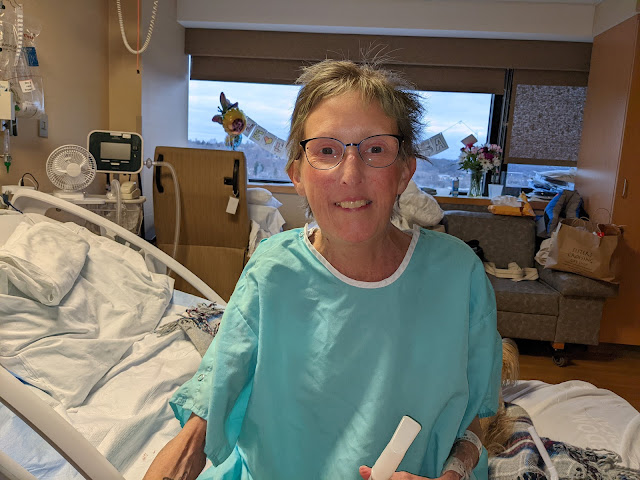
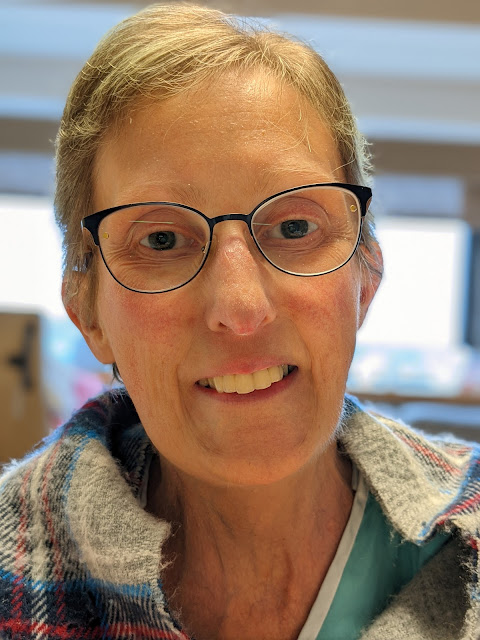
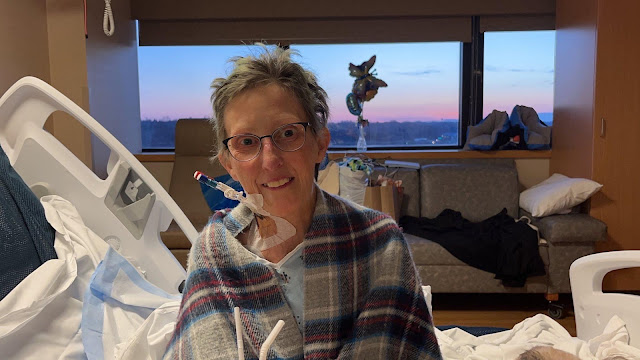
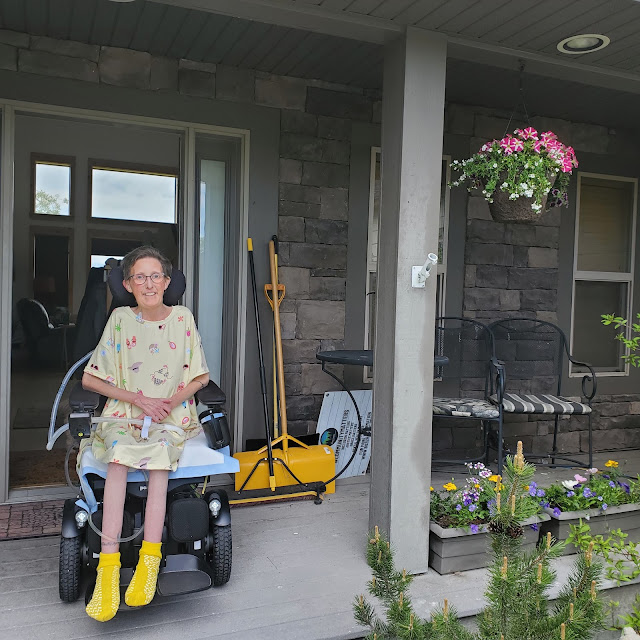
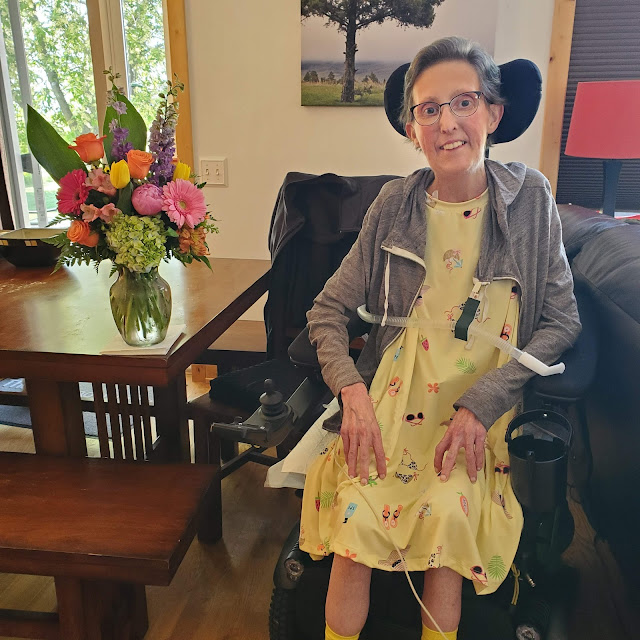



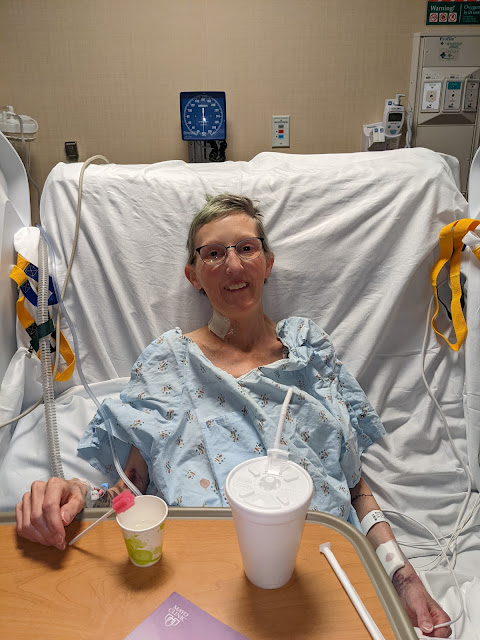

Comments
Post a Comment